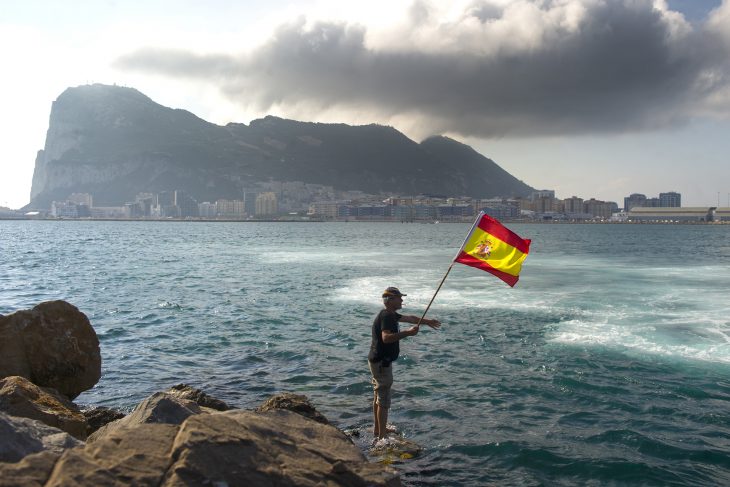As the events of the last few days show, the increasingly toxic issue of Gibraltar means the UK’s Article 50 talks with Spain might become more fraught than either party would like. It’s not just that Spain wants to share sovereignty of the Rock with Britain; more dangerous is the fact that Brussels can exploit this dispute to punish the UK for Brexit.
In fact, this weekend’s fracas over Gibraltar’s post-Brexit status shouldn’t have caused the uproar it did. True, the document distributed to EU member governments on Friday by Donald Tusk highlighted Spain’s ability to veto Gibraltar’s inclusion in any EU-UK deal; but as part of the soon-to-be 27 member bloc, Spain already possessed that ability. After all, every other member state would have a veto too. Although, of course, for no other EU country is the Gibraltar question as pertinent or as vexed as it is for Spain.
Tusk’s negotiating guidelines (which are still only in draft form) merely highlight Brussels’ intention to stand behind other EU members if their interests clash with those of the UK, as is the case with the Rock. His blunt reminder that Britain is ‘now on the other side of the negotiating table’ – in this case from both Spain and the EU as a whole – serves the same purpose.
We knew all of this anyway, but Tusk’s briefing document still seemed to cause a temporary loss of sanity among some British politicians. Michael Howard’s comparison between the Falklands War and the Gibraltar sovereignty issue was absurdly overwrought; it brought to mind Boris Johnson’s daft remarks about Prosecco last November. Careless comments such as these only tempt the EU to adopt antagonistic and dismissive attitudes towards the UK in return; they also show Brussels where it can hurt Britain if it wishes to. A vicious circle is being created, in which talks that will determine the nature of the UK’s withdrawal from the EU and the new status of Gibraltar are becoming embittered before they’ve even begun.
With regard to Anglo-Spanish relations, this needn’t be the case. Both Rajoy and his economy and tourism minister Luis de Guindos have recently stressed the importance of the UK to Spain and vice-versa. About half a million Brits live in Spain and around 300,000 Spaniards live in the UK. In 2016, one in every five tourists to Spain was British. The UK is the biggest recipient of Spain’s foreign investment, receiving 17 per cent of the total amount every year. This is why de Guindos told reporters at the World Economic Forum in January that the UK is ‘Spain’s closest ally’ and that he was ‘totally sure’ Brexit talks can be amicable. It was an attitude also expressed by Rajoy a couple of weeks ago, when he said there was no need to ‘dramatise’ Brexit and thereby make it more complicated than it already is. You can only imagine, then, what he must have made of Howard’s jingoistic reference to the Falklands War – a war conducted, as the former Conservative leader described it, in order to defend a small British territory against ‘another Spanish-speaking country’.
It’s also unclear whether Spain’s desire for healthy post-Brexit Anglo-Spanish relations can co-exist with Brussels’ desire to make Britain pay for quitting the EU. There will be little room for Spain to pursue unilateral action in the talks that finally started last Wednesday. And by supporting Spain in its quest to take Gibraltar from the UK, Tusk can try and punish Britain for having the temerity (as he sees it) to leave the bloc. How Spain would maintain an amicable dialogue with the UK at the same time is anyone’s guess. Despite both countries’ best intentions, it looks as if the next two years will be a severe test of Anglo-Spanish relations – a test which the UK and Spanish governments must ensure they do not fail.






Comments